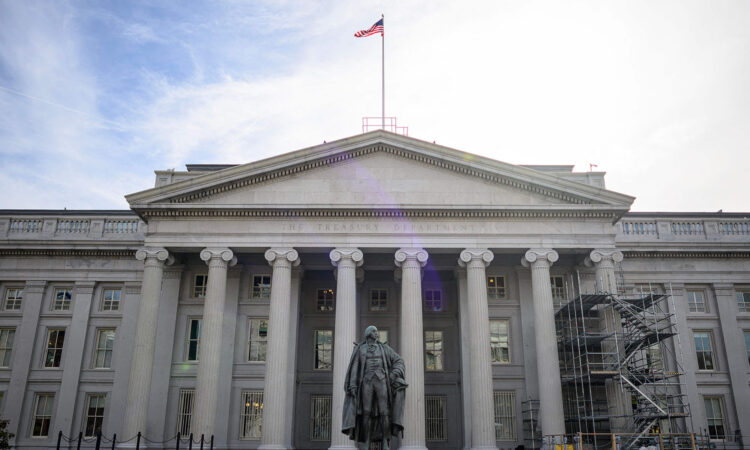
A long-awaited rule meant to clamp down on money laundering through the U.S. real estate market is likely to be proposed in early 2024, according to the U.S. Treasury Department.
The new regulations may require real estate professionals to report the beneficial owners of companies that buy properties in cash to the department’s Financial Crimes Enforcement Network, according to Reuters.
In August, Reuters reported that FinCEN was slated to issue a notice of proposed rulemaking that month but the agency pushed back the timeline without explanation.
ICIJ learned that FinCEN submitted the rule to the White House’s Office of Management and Budget for review last week, with a view to formally proposing it in February 2024.
Treasury’s announcement coincided with the release of a new report by anti-corruption advocacy group Transparency International, which found that the U.S. lags behind other wealthy countries in its anti-money laundering framework for the real estate industry.
To inform recommendations for U.S. lawmakers, the report compared data from 21 countries, 19 of which are members of the Organization for Economic Cooperation and Development, or OECD.
Researchers described the United States as a “singular outlier” among the surveyed countries. In all but the U.S., anti-money laundering obligations for real estate transactions applied across the entire country, and to both residential and commercial property purchases, the report said.
The sector’s lack of transparency has been on Treasury’s radar for some time. In March, Treasury Secretary Janet Yellen cited one estimate that at least $2.3 billion in illicit funds were laundered through U.S. real estate between 2015 and 2020.
Banks, by comparison, are required to track the source of clients’ funds and report suspicious transactions to FinCEN.
The new real estate rule will build on public feedback submitted to the agency since the rulemaking process launched in December 2021.
Citing ICIJ’s 2021 Pandora Papers investigation, the Transparency International report argues that regulation must also address the use of highly secretive trusts to buy real estate.
As part of that investigation, ICIJ identified 206 U.S.-based trusts holding more than $1 billion in combined assets linked to 41 countries. Nearly 30 of those trusts were tied to entities and individuals accused of criminal activity and human rights abuses.
Transparency International’s U.S. director, Gary Kalman, warned that beyond obscuring illicit money flows, faceless entities have reshaped the housing market. When anonymous buyers park wealth in luxury real estate, markets move artificially to cater to high-end demand instead of fulfilling “natural” demand for affordable or moderately-priced housing, he told ICIJ.
ICIJ’s recent Cyprus Confidential investigation revealed that even modest homes and apartment buildings have become hot investments. Leaked documents showed that a financial fixer in Cyprus, now sanctioned for his business ties to Russian oligarchs, was behind the 2014 sale of a New York apartment building through a shell company. The building’s tenants reported a drop in overall maintenance and some were driven out by rising rents.
Vacant residential properties also take a toll on surrounding businesses, Kalman said.
“You don’t think about it, but the dry cleaners, the bodegas and the small shops that are at the bottom of these buildings all rely on foot traffic,” Kalman said. “If there’s nobody in the building, they end up closing.”
Since 2016, FinCEN has required real estate professionals in some U.S. cities, including New York, to make disclosures about beneficial ownership. But transparency experts say the patchwork rules are difficult to enforce.
It’s unknown if the new rule will target both residential and commercial transactions, or if the latter will be addressed through a separate rulemaking process, Kalman said.
“I don’t think [Treasury is] going to be silent on it,” he said. “[The] question is: How are they getting the process moving forward so that we’re not just kicking the can down the road?”






